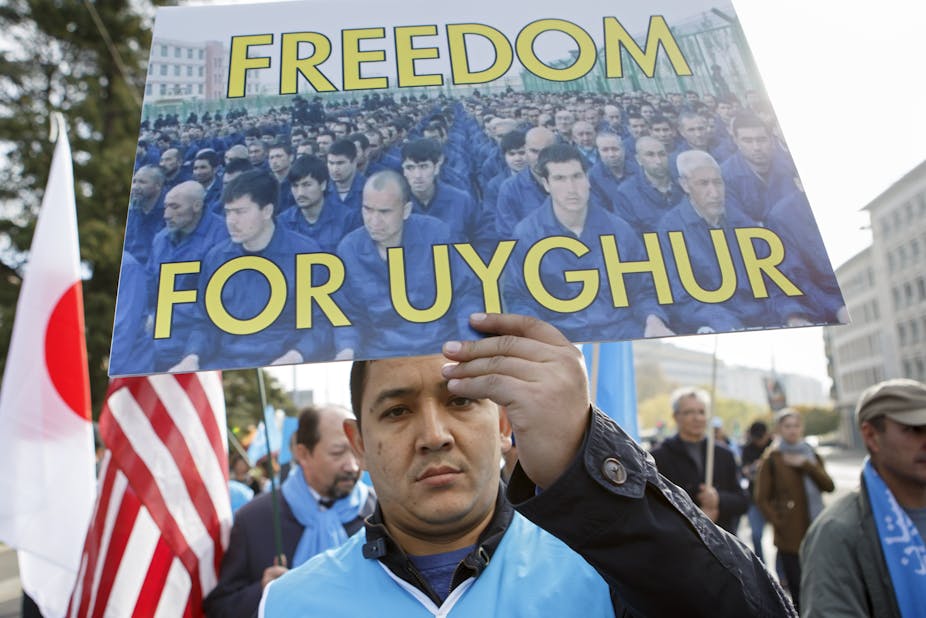
A letter signed in early July by 22 Western countries, including the UK, Australia, Canada and France, raised serious concerns to UN officials about China’s incarceration of Uyghur people in so-called education camps in the country’s Xinjiang region. A few days later, a second letter emerged. Signed by 37 governments, including North Korea, Russia and Saudi Arabia, it effectively endorsed China’s human rights abuses in the region.
All of the signatories of the second letter have appalling human rights records of their own. Like the Chinese government, they suppress their political opponents and impose severe restrictions on critical media. Many subject their critics to arbitrary arrest, torture, long prison sentences or the death penalty after grossly unfair trials.
The letter highlights China’s latest win in its plan to reshape the international human rights system. For more than a decade, as documented in a 2012 Chatham House study, Chinese officials have worked hard to derail human rights resolutions at the UN whether or not they had a bearing on the country’s own record.
Alarm about the role China is playing to weaken the UN human rights system was also raised by Human Rights Watch in 2017. It accused China of intimidation on UN premises, obstruction of NGO advocacy at the UN, resistance to routine practices regarding appointments and media broadcast, and efforts to weaken key human rights resolutions.
If China succeeds in gaining the support of a majority of UN member states, it can push to water down some of the binding international legal safeguards for human rights, such as civil and political rights.
Insisting on sovereignty
China’s approach has been to engage with the UN’s human rights bodies to impose its own narrative, which misinterprets sovereignty as being distinct and above human rights. The Chinese government persistently reacts to any criticism of China by labelling it interference in the internal affairs of a sovereign state. In doing so, it ignores repeated emphasis in international human rights law that human rights depend on one another. The exercise of one right, such as the right to sovereignty, cannot allow the violation of another, such as the right not to be tortured.
Chinese delegates at the UN Human Rights Council said they “highly appreciated” the letter of support by the 37 signatories. China’s ambassador to the council, Chen Xu, said: “We have repeatedly expressed that what is going on in Xinjiang is entirely an internal affair of China and it involves China’s sovereignty and territorial integrity.”
A dangerous block
China is recruiting like-minded governments to push its line on sovereignty. The 37 signatories of the letter, as well as other countries not on the list, including Iran and Turkey, are taking the same approach towards legitimate criticism of their human rights records. Not only are they brothers in arms against safeguarding human rights, but for many their partnership with China’s Belt and Road Initiative or their dependency on China’s low interest loans is a growing incentive to join China’s block. The stronger this menacing form of solidarity grows, the less effective human rights safeguards will be in these countries.
Chinese officials have repeatedly termed the criticism of their treatment of Uyghurs in Xinjiang region as Western media politicising the issue. But the block of support that China is building is itself a highly political enterprise. The countries include Muslim states, such as Pakistan and Saudi Arabia, who turn a blind eye to the treatment of Muslims in China but have been vocal against the treatment of Muslims in other parts of the world in a display of double standards.
What unites many of the 37 countries who support China is their style of governance. They all appear hostile to campaigns for democracy in their countries, ruthlessly suppress freedoms, and with a few exceptions rank high in Transparency International’s Corruption Perceptions Index.
China may not be currently pushing for actual amendments to international human rights law, but it is advocating a change in how the law is interpreted. It may also want to have control in future on the appointment of independent experts, for which it would need support from other countries. A block of 37 countries may not yet be a decisive development, but it is the start of what could be a nightmare for human rights defenders.
China’s economic might and worldwide influence enable it to deflect international criticism of its poor human rights record. With a growing army of like-minded governments behind it, international human rights safeguards have never been so dangerously exposed.![]()
Abbas Faiz, Lecturer on Human Rights, School of Law, University of Essex
This article is republished from The Conversation under a Creative Commons license.


